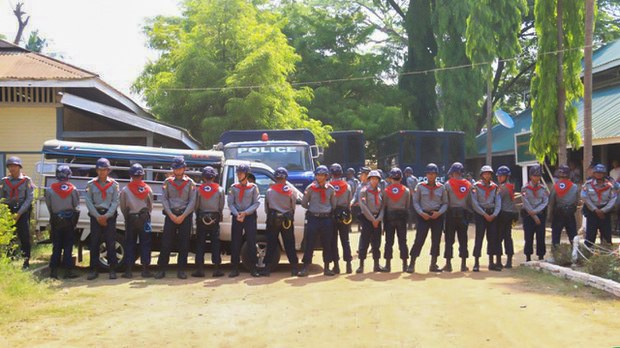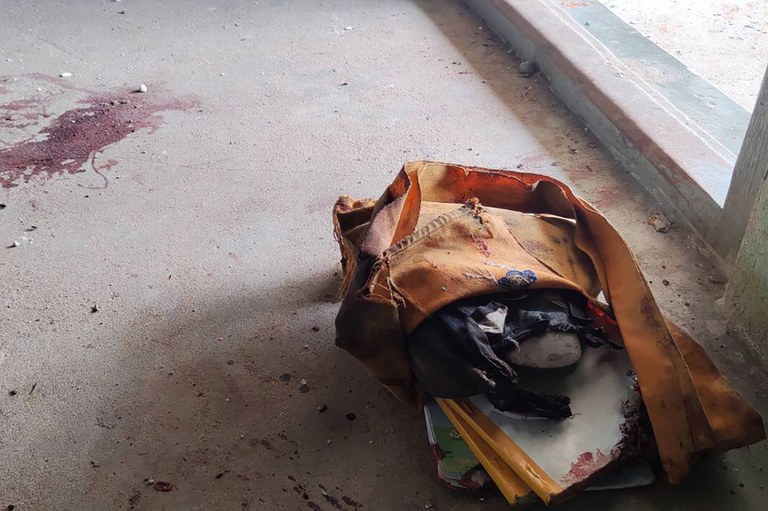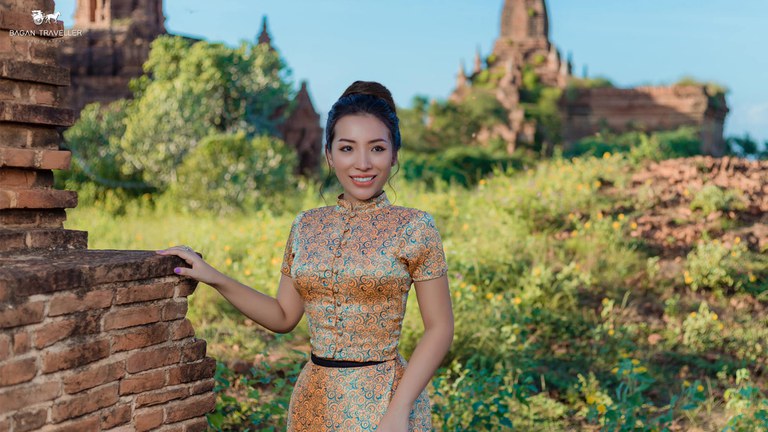
Myanmar junta transfers dozens of political prisoners to notorious detention center
Authorities under the junta’s Ministry of Home Affairs have transferred dozens of political prisoners from Myanmar’s Insein Prison in Yangon to a facility infamous for its poor treatment of inmates, RFA has learned, prompting concern from family members for their well-being. Prison Department authorities transferred the estimated 250 political prisoners to western Bago region’s Tharyarwaddy Prison – where former inmates have reported being subjected to torture and other forms of abuse – on Sept. 24, relatives told RFA Burmese, adding that they were never informed of the move. Former political prisoners say transferring inmates to prisons such as Tharyarwaddy, where they have little access to family members and are subjected to poor treatment, is a tactic the junta uses to punish them for their activism and break their spirit. A family member of journalist and political prisoner Nyein Nyein Aye, who was among those transferred to Tharyarwaddy last month, said they were worried about her safety and status at the new prison. “I got a surprise phone call informing me they were transferring her to a new location. I was shaken,” said the family member of the reporter, also known as Mabel, who is serving a three-year sentence for allegedly violating the country’s Counterterrorism Law. “Tharwaddy is not close to where we live. It will be very difficult to send her packages. I later learned that she was forced to move abruptly and had to leave all her belongings … She has to buy all of her personal items at the new location. It will be very difficult for her.” Another relative of a political prisoner, who declined to be named, said getting packages to inmates at Tharyarwaddy is significantly more complicated. “We need to present a copy of our national ID card and list of family members issued by Immigration Department to prove we are related to the prisoner,” they said. “A family member must then go in-person to deliver the package. It is challenging because now they are in another region. I can’t travel there every month to do that because I don’t have enough money.” Additionally, the relative said, there is no guarantee that inmates will even receive what is sent to them, as the staff at Tharyarwaddy are known to steal the contents of packages. “I cooked enough food for a month, but [my relative] didn’t receive all of it. I was told they only received four of the 15 packages I sent,” they said. When asked by RFA about the conditions at Tharyarwaddy, Deputy Director General of the Prison Department Naing Win dismissed the allegations. “We currently have some regulations for health reasons, so all packages are kept at a facility associated with the prison. We process and inspect them and then forward them on,” he said. “They can file a complaint to us if they have problems sending packages. We are doing our best to facilitate the process. We have never violated their rights or made the prisoner’s lives harder.” Police security forces guard Tharrawaddy Prison on Aug. 4, 2015. Credit: RFA Reports of abuse In addition to concerns over personal property, there have been reports of political prisoners being mistreated, physically abused, and even tortured at Tharyarwaddy. In July, authorities transferred more than 60 political prisoners to Tharyarwaddy from Hpa-An Prison in Kayin state. Sources told RFA that upon their arrival, the inmates were forced to sit in uncomfortable positions and later beaten, leaving several with severe injuries. Mar Kee, a former student activist and prisoner of conscience who served time in Tharyarwaddy Prison during the 1980s told RFA that it is one of Myanmar’s worst detention centers. “During our time, the prison had severe restrictions and life was very tough … We had to fight for our rights as they forced political prisoners to perform hard labor with the other inmates and we endured torture there,” he said. “We heard conditions improved after ICRC (International Committee of the Red Cross) staff visited the prison. I assume the current situation there might not be as bad as in our time. But it won’t be as good as the time immediately following the ICRC visit.” Mar Kee said political prisoners who staff at other prisons had singled out as “troublemakers” were immediately subjected to physical abuse upon their arrival at Tharyarwaddy, and often placed in solitary confinement. ‘Their intent is clear’ Former political prisoner Win Zaw Naing told RFA that the junta is following the playbook of Myanmar’s previous military regime in dealing with prisoners of conscience by sending them to Thayarwaddy and prisons in remote locations, where they have less access to family members and are forced to endure harsh conditions. “Their intent is clear,” he said. “They want to subject political prisoners to hardships.” Win Zaw Naing said authorities also intend to “punish the family members” by transferring political prisoners to far flung locations where they lose contact with their loved ones for months at a time. “Their hope is to hurt both the prisoners and their relatives outside the prison,” he said. Thailand’s Assistance Association for Political Prisoners (Burma) says that authorities in Myanmar have arrested nearly 16,000 people since last year’s coup – mostly during peaceful anti-junta protests. More than 12,500 remain in detention, the group says. Translated by Ye Kaung Myint Maung for RFA Burmese. Written in English by Joshua Lipes.






